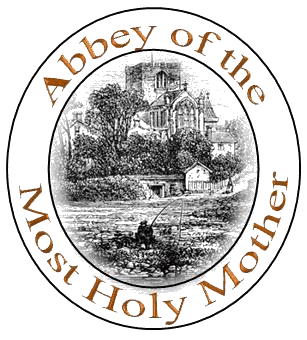
Many of us are brought up only knowing the Roman Catholic Church and so are often confused when we are exposed to the concept of catholic churches that are not Roman Catholic. In the Christian belief system/religion there are many groups that have common doctrines, practices/traditions, worship ideas, beliefs, mythologies, and even different holy scriptures. These groups with different ways of following Christianity are referred to as Christian Denominations.
Denominations can be thought of as different spokes on a wheel all connected at the center by the hub, which in the case of Christianity is the teachings of Jesus. So a Christian denomination is an organization of people who gather to worship, pool funds, operate ministries, construct church buildings, establish non-profit corporations, and do all the activities that people normally associate with the word “Church” including having similar religious or spiritual beliefs and practices. Catholic denominations for example generally follow the traditions of sacramental worship and the teaching as established in the early Christian periods before Christianity was split up into the protestant and catholic schools of thought. Catholic denominations like vary in their theologies, rites, and practices churches and range from ultra-conservative to ultra-liberal just like the many protestant denominations do. So much like the younger protestant branch of Christianity has denominations like Baptist, Methodist and Presbyterian, the older catholic branch of Christianity has a number of separate catholic denominations. Of course the largest and most widely know catholic denomination is the Roman Catholic Church, there are numerous other catholic denominations around the world as well, some as old or older then the Roman Church.
While the Pope is the head of the Roman Catholic Church, he is a presiding bishop (senior/lead bishop) just like the presiding bishops of other protestant and catholic denominations. The word bishop comes from the Greek for: “Overseer" while the word pope is a shorten version of his actual title Pontifex Maximus, which is Latin for "greatest pontiff". The Pope has been elected by members of the college of cardinals which is similar to a board of directors of a large corporation or a countries parliament. In fact the Pope according to Roman Law is head of the empire in the absence of crowned emperor and today he is legally looked as having the same head of state status as the president or prime minister of any other country. Although today cardinals are ordained clergy member up until 1917 there was no Roman Law requiring this and in fact there have been many lay cardinals (not ordained clergy), one famous and influential one being Lay Cardinal Theodulf Mertel. Today if someone is desired to be cardinal and is not an ordained clergy, they are simply ordained as deacon just before being approved as a cardinal. So in effect just as the presiding bishop of any denomination is usually the CEO of that church corporation, the Pope is in effect the CEO of the Roman Catholic Church. In the independent catholic community of churches presiding bishops and/or abbots can lead denominations or Jurisdictions as they are often called.
Unlike the majority of protestant denominations, clergy in catholic churches have what is known as Apostolic succession, this is a process which involves a priest being consecrated to the priesthood by the laying on of hands and the anointing with sacred Oil of Chrism by a validly consecrated bishop or other authorized ordained clergy with apostolic succession. To be valid the line of succession must be unbroken and traceable all the way back to Jesus laying his hands on the original apostles.
Over the thousands of years of church history there have been validly consecrated bishops from Catholic denominations including the Roman Catholic Church who have broken their affiliation and allegiance to a particular denomination. The major splits or schisms, from the One Holy Catholic and Apostolic Church (sometimes called the greater Catholic Church) founded 2000 years ago, were The Eastern Orthodox separation in 1054 and the Anglican community in 1534. There have been a few times in church history where the Church at Rome has given permission for a particular Diocese to elect its own bishops without being appointed by the Pope. Bishops, independent of Rome, have come about through both of these mechanisms.
Some of the best known "non-Roman" or independent Catholic denominations (jurisdictions) are the “Old Catholic Church” the “Liberal Catholic Church” The “Old Roman Catholic Church” the “American Catholic Church” the “American Orthodox Church” the “United Reform Catholic Church International” and many more. Each of these independent catholic denomination establishes their own Code of Canon Law, and their own theological stand on these issues. As previously stated the various denominations move from very conservative to very liberal. You would have to check with each church group to find out what their stance is on these matters. The Church and Abbey of the Most Holy Mother ordains men and women to its priesthood, priests can be married, celibacy is not required of anyone, and we do not discriminate based on ethnicity, color, sex, marital status or orientation. Just as Jesus taught we openly accept everyone from any walk of life or social standing who long to learn freedom via the truths first taught by Jesus.
Jesus said, "And ye shall know the truth, and the truth shall make you free." John 8:32
Denominations can be thought of as different spokes on a wheel all connected at the center by the hub, which in the case of Christianity is the teachings of Jesus. So a Christian denomination is an organization of people who gather to worship, pool funds, operate ministries, construct church buildings, establish non-profit corporations, and do all the activities that people normally associate with the word “Church” including having similar religious or spiritual beliefs and practices. Catholic denominations for example generally follow the traditions of sacramental worship and the teaching as established in the early Christian periods before Christianity was split up into the protestant and catholic schools of thought. Catholic denominations like vary in their theologies, rites, and practices churches and range from ultra-conservative to ultra-liberal just like the many protestant denominations do. So much like the younger protestant branch of Christianity has denominations like Baptist, Methodist and Presbyterian, the older catholic branch of Christianity has a number of separate catholic denominations. Of course the largest and most widely know catholic denomination is the Roman Catholic Church, there are numerous other catholic denominations around the world as well, some as old or older then the Roman Church.
While the Pope is the head of the Roman Catholic Church, he is a presiding bishop (senior/lead bishop) just like the presiding bishops of other protestant and catholic denominations. The word bishop comes from the Greek for: “Overseer" while the word pope is a shorten version of his actual title Pontifex Maximus, which is Latin for "greatest pontiff". The Pope has been elected by members of the college of cardinals which is similar to a board of directors of a large corporation or a countries parliament. In fact the Pope according to Roman Law is head of the empire in the absence of crowned emperor and today he is legally looked as having the same head of state status as the president or prime minister of any other country. Although today cardinals are ordained clergy member up until 1917 there was no Roman Law requiring this and in fact there have been many lay cardinals (not ordained clergy), one famous and influential one being Lay Cardinal Theodulf Mertel. Today if someone is desired to be cardinal and is not an ordained clergy, they are simply ordained as deacon just before being approved as a cardinal. So in effect just as the presiding bishop of any denomination is usually the CEO of that church corporation, the Pope is in effect the CEO of the Roman Catholic Church. In the independent catholic community of churches presiding bishops and/or abbots can lead denominations or Jurisdictions as they are often called.
Unlike the majority of protestant denominations, clergy in catholic churches have what is known as Apostolic succession, this is a process which involves a priest being consecrated to the priesthood by the laying on of hands and the anointing with sacred Oil of Chrism by a validly consecrated bishop or other authorized ordained clergy with apostolic succession. To be valid the line of succession must be unbroken and traceable all the way back to Jesus laying his hands on the original apostles.
Over the thousands of years of church history there have been validly consecrated bishops from Catholic denominations including the Roman Catholic Church who have broken their affiliation and allegiance to a particular denomination. The major splits or schisms, from the One Holy Catholic and Apostolic Church (sometimes called the greater Catholic Church) founded 2000 years ago, were The Eastern Orthodox separation in 1054 and the Anglican community in 1534. There have been a few times in church history where the Church at Rome has given permission for a particular Diocese to elect its own bishops without being appointed by the Pope. Bishops, independent of Rome, have come about through both of these mechanisms.
Some of the best known "non-Roman" or independent Catholic denominations (jurisdictions) are the “Old Catholic Church” the “Liberal Catholic Church” The “Old Roman Catholic Church” the “American Catholic Church” the “American Orthodox Church” the “United Reform Catholic Church International” and many more. Each of these independent catholic denomination establishes their own Code of Canon Law, and their own theological stand on these issues. As previously stated the various denominations move from very conservative to very liberal. You would have to check with each church group to find out what their stance is on these matters. The Church and Abbey of the Most Holy Mother ordains men and women to its priesthood, priests can be married, celibacy is not required of anyone, and we do not discriminate based on ethnicity, color, sex, marital status or orientation. Just as Jesus taught we openly accept everyone from any walk of life or social standing who long to learn freedom via the truths first taught by Jesus.
Jesus said, "And ye shall know the truth, and the truth shall make you free." John 8:32
Independent Catholicism
And Jesus came and spake unto them, saying, "All power is given unto me in heaven and in earth. Go ye therefore, and teach all nations, baptizing them in the name of the Father, and of the Son, and of the Holy Ghost: Teaching them to observe all things whatsoever I have commanded you: and, lo, I am with you alway, even unto the end of the world."
Matthew 28:18-20
Matthew 28:18-20



Abbey of the Most Holy Mother
870-206-0160
870-206-0160
© 2012 - 17 Abbey of the Most Holy Mother